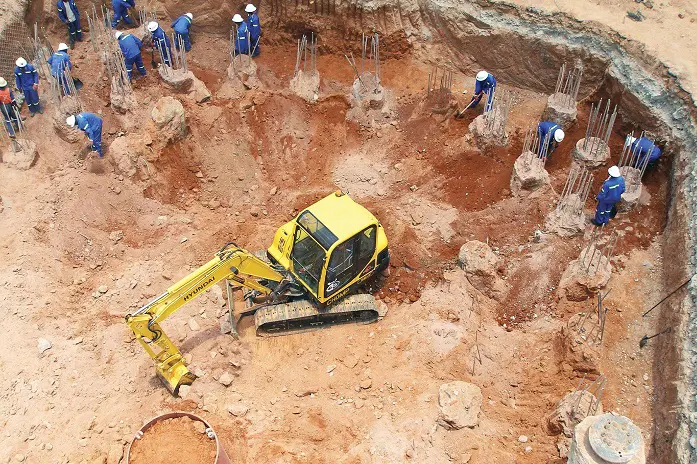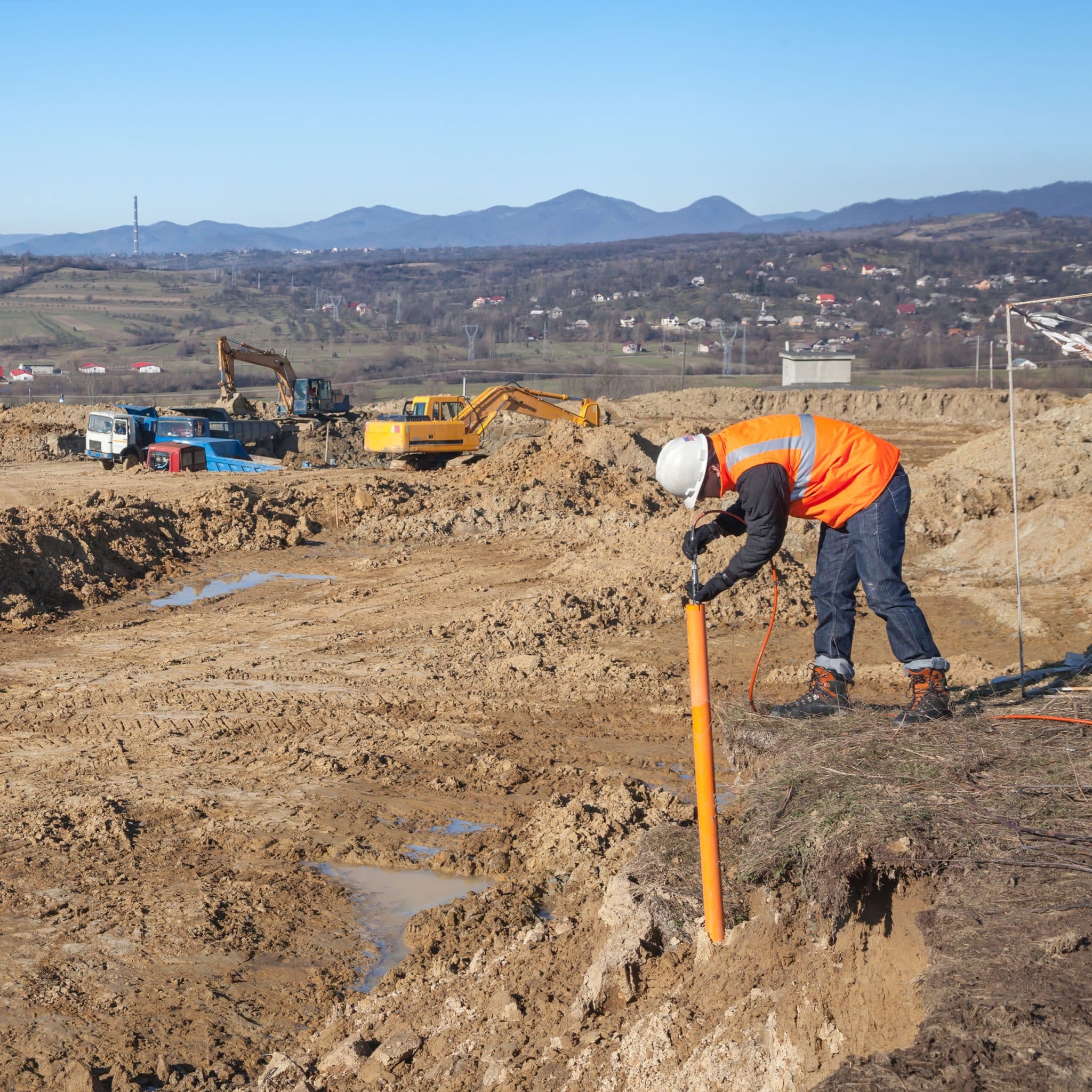Why the Geotechnical Industry Demands Cutting-edge Solutions Currently
A Detailed Overview of the Trick Duties of Geotechnical Engineers in Website Characterization and Ground Enhancement Techniques for Design Solutions
Geotechnical engineers are important to the effective execution of engineering tasks, entrusted with the essential duties of website characterization and the application of ground enhancement techniques. Their job involves a comprehensive analysis of subsurface problems, utilizing different testing approaches to recognize soil and rock residential properties.
Function of Geotechnical Engineers
Geotechnical designers play an essential function in the design and building and construction of facilities by analyzing the actions of soil and rock below the surface area - civil consulting engineers. Their obligations encompass reviewing subsurface problems to inform style decisions that make certain structural security and safety. By performing in-depth evaluations of soil residential or commercial properties, including shear compressibility, strength, and leaks in the structure, geotechnical designers provide critical data that influences the option of appropriate construction products and methods
In addition to assessing soil mechanics, geotechnical engineers are charged with identifying potential threats such as landslides, sinkholes, and ground settlements. Their knowledge assists mitigate dangers connected with these geotechnical phenomena, consequently shielding both the atmosphere and public safety and security. They likewise collaborate carefully with various other engineering disciplines, ensuring that geotechnical considerations are incorporated into general job layout.
Additionally, geotechnical engineers participate in the evaluation of existing frameworks, giving referrals for retrofitting and repairs when necessary. Their thorough understanding of soil-structure communication is crucial for the advancement of lasting facilities solutions. On the whole, the function of geotechnical engineers is indispensable to the successful realization of construction jobs, guaranteeing they are secure, durable, and certified with regulatory criteria.

Site Characterization Procedures
Efficient site characterization processes are important for recognizing the subsurface problems that affect project style and execution. Geotechnical engineers utilize a methodical approach to gather, assess, and interpret data concerning rock, dirt, and groundwater features. This process starts with a comprehensive review of existing literature and historic site data, supplying insights right into previous site conditions and possible obstacles.

Data evaluation follows fieldwork, where engineers utilize geostatistical techniques to interpret findings and create geological models. Via diligent site characterization, geotechnical engineers lay the groundwork for effective project execution, enhancing and decreasing unforeseen problems resource allotment.
Soil and Rock Screening Techniques
While comprehending subsurface problems is critical, the selection of appropriate soil and rock screening techniques is equally crucial for accurate evaluation and style. Geotechnical designers employ a selection of testing techniques to assess the physical and mechanical homes of soil and rock materials.
Lab examinations, such as Atterberg limits, grain dimension analysis, and unconfined compressive strength examinations, give crucial data on soil habits under various moisture conditions and packing circumstances. These tests aid identify dirt category and anticipate negotiation or shear toughness qualities vital for foundation style.
In-situ screening methods, consisting of Requirement Infiltration Examinations (SPT), Cone Infiltration Tests (CPT), and pressure meter examinations, enable designers to gather information straight from the ground. These techniques supply useful understandings into the dirt's density, uniformity, and stratification without the requirement for substantial sampling.
Rock testing normally involves core tasting and research laboratory evaluation to analyze properties like uniaxial compressive toughness and rock her response quality designation (RQD) Together, these soil and rock screening methods make it possible for geotechnical engineers to make enlightened decisions relating to site-specific challenges, making certain the security and stability of design remedies.
Ground Improvement Methods
Ground improvement techniques are vital for improving the engineering residential or commercial go to these guys properties of dirt, thus enhancing its load-bearing ability and reducing settlement. These methods are crucial in addressing obstacles provided by bothersome or weak dirts, which can dramatically affect the stability and durability of structures.
Different ground renovation methods are utilized, consisting of compaction, grouting, and dirt stablizing. Compaction entails increasing the thickness of soil with mechanical means, which enhances its shear strength and decreases compressibility. Grouting, on the various other hand, involves infusing a fluid product into the ground to fill spaces and improve dirt cohesion. This method is specifically efficient for dealing with loose sands or broken rock.
Soil stablizing includes a variety of methods, from chemical additives to mechanical therapies, targeted at boosting the dirt's resistance to disintegration and contortion. Techniques such as lime stablizing or cement mixing alter the residential properties of the dirt at a fragment degree, enhancing its total performance.
Value of Geotechnical Evaluations
Geotechnical analyses play a vital function in the planning and style of design jobs, as they provide vital details concerning the subsurface problems. Recognizing dirt homes, rock formations, groundwater levels, and potential geohazards is crucial for ensuring the stability and security of structures. These assessments enable designers to make informed decisions pertaining to website choice, layout specifications, and building techniques.
The significance of geotechnical assessments extends past preliminary task phases; they are crucial in risk administration and cost performance. By determining prospective concerns early, such as soil negotiation, slope instability, or excessive groundwater, engineers can create suitable mitigation methods, reducing the probability of expensive delays and architectural failings. These assessments support conformity with governing needs and boost the sustainability of engineering techniques.

Conclusion
To conclude, geotechnical engineers are vital to making certain the safety and security and stability of design tasks with detailed site characterization and ground enhancement strategies. civil consulting engineers. Their methodical method to assessing subsurface conditions, incorporated with their recommendations for reliable ground adjustment, considerably improves soil homes and load-bearing ability. The expertise of geotechnical engineers not only helps with enlightened project planning Discover More Here but additionally makes sure conformity with laws and promotes efficient interaction among stakeholders, eventually adding to effective engineering outcomes
Geotechnical engineers play a critical duty in the design and construction of infrastructure by analyzing the habits of soil and rock underneath the surface. By conducting comprehensive analyses of dirt buildings, consisting of shear leaks in the structure, strength, and compressibility, geotechnical designers offer important data that influences the selection of suitable building materials and methods.
In enhancement to examining soil mechanics, geotechnical engineers are tasked with determining prospective dangers such as landslides, sinkholes, and ground negotiations. Geotechnical designers use a methodical method to collect, evaluate, and analyze data pertaining to rock, groundwater, and soil features. By recognizing prospective issues early, such as dirt settlement, slope instability, or too much groundwater, engineers can develop proper reduction strategies, lowering the possibility of architectural failures and pricey hold-ups.